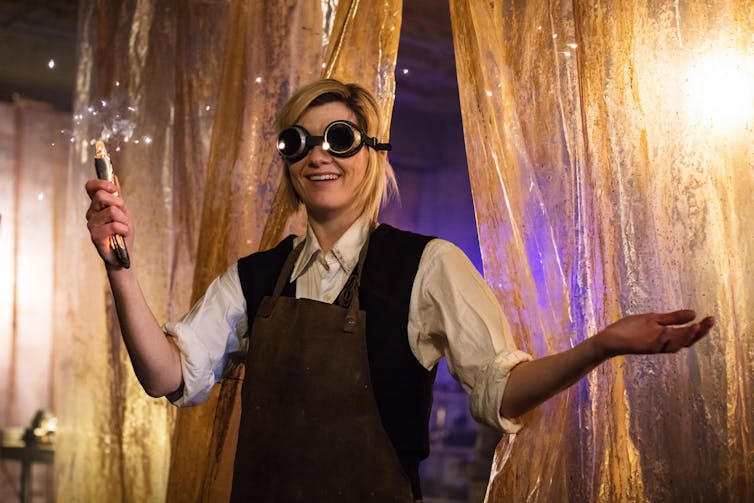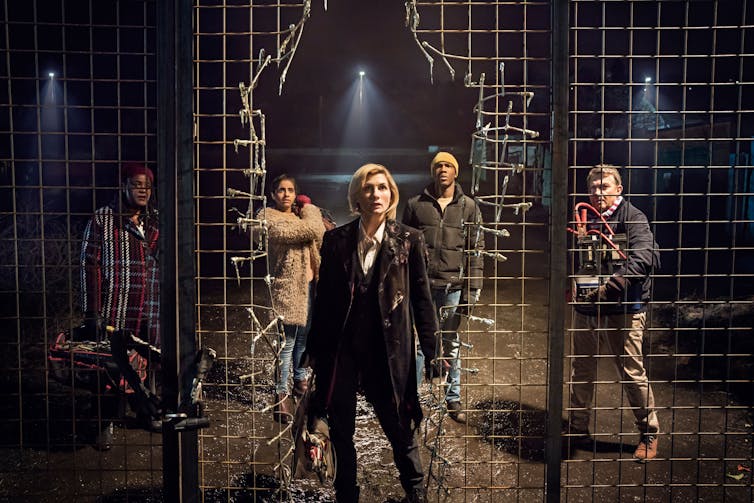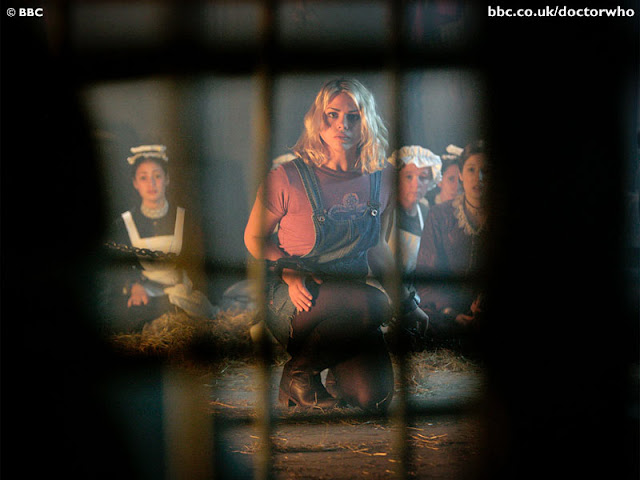 |
| The Tardis (Image via LoupDargent.info) |
- I am a fan of Doctor Who
- I am a blue police box
But in most respects, writers are Tardises.
Bigger on the inside
The first thing one notices when stepping into the Tardis is...come on, say it all together with me...it's bigger on the inside.The first thing one notices when conversing with a writer is that he is bigger on the inside.
A writer accumulates a vast array of knowledge with every writing project. In fact, research is half the writing process. For instance:
- When I wrote my own book on happiness, I read several dozen academic journal articles and at least a dozen other self-help books.
- When I ghostwrote a true story of corporate espionage for a client, I learned a lot about HVAC, trades regulations, subcontracting and how an airport is built (among other things).
- When I ghostwrote the hidden story behind the Underground Railroad and a forgotten town on the US-Canada border, this Canadian learned a lot more about American history than most Americans know.
I've forgotten much more than I remember, but I remember more than most non-writers are exposed to.
 |
| "The first thing one notices when conversing with a writer is that he is bigger on the inside." |
Finicky
Ever meet a Tardis that wasn't finicky? It will take you where it wants to take you, rarely where you want to go. As long as you are happy being lead around, you'll get along just fine.Ever meet a writer that wasn't finicky? Oh, yeah. We dwell on each word, determined to get it just right. We have our own ideas of how a story should go. Yes, editors are our friends...but we curse them for every comma they change.
When it comes time to write a screenplay from a novel, sparks fly (which is occasionally another ... um ... endearing feature of the Tardis).
Travels in time
In case it's lost on anyone that the Tardis is a time machine, it is. That's the whole point. It travels in space and time, taking its usually willing occupants with it to the near and distant past, and to the near and distant future.It's taken the Doctor and his companions more than once to New New York, and several times to Victorian England. It took us to the Jagoreth space ship's explosion that created life on Earth, and it's taken us to the end of the Earth.
Like the Tardis, writers travel in time. We write about things that have already happened. As we write, we are transported.
We write about worlds that are yet to be created. As we write, we are transported.
How is this possible? What alien technology, known only to writers, allows us to travel in time?
Well, it's not technology. It's actually a not-so-secret time-travel manual I published on my own blog. But, sorry, you have to be a writer to make use of it. The good news is that you can become a writer if you are sufficiently motivated.
 |
| "Like the Tardis, writers travel in time. We write about things that have already happened. As we write, we are transported." |
Travels in space
Of course, the Tardis travels not just in time, but in space. For instance, New New York is not even on Planet Earth.The finicky Tardis will take its occupants whenever and wherever it feels like. By the way, that's what we writers do. You never know what spine-thrilling adventure the next chapter holds.
Reinvents itself
As we saw when the Tardis finally made its appearance in season 11, it looked totally new, both on the inside and on the outside.And that's not the first Tardis redecoration. Every so often, the Tardis reinvents itself.
Writers do that, too. Consider Anne Rice, famous for her vampire novels. She also wrote Christ the Lord: Out of Egypt. Spoiler alert: there are no vampires.
She has also branched into erotica, and I'll go out on a limb to suggest the vampires are rare in those works.
As you can tell by my own list of a few of the topics I've written on, a ghostwriter reinvents himself for each new project.
Every reader is a companion
If every writer is the Tardis, every reader is a companion. The writer takes the reader on a trip. She takes them where and when she feels like it. The reader has three choices:- Follow along, as most companions do for as long as possible.
- Do what Barbara and Ian did, what Martha and several other companions did – decide to stop travelling.
- Follow Rosita's lead, and stay off from the start, in which case they aren't companions.
On the wings of the writer (also not anatomically correct, most of the time) readers get to travel in time and in space. Until they get off. Or they might choose not to open the book...in which case they aren't readers.
Like the Doctor's companions, readers are observers to events. They don't change things. They don't interfere. They don't alter the course of history. They merely watch and listen.
Unlike the Doctor's companions, readers actually follow those rules of non-interference. In fact, readers are like companions who actually behave.
The same cannot be said of us rule-breaking writers, who have been known to be liberal with our interpretations of history (but somehow seem to avoid the paradox that our interference doesn't actually change history). Someday, I must ask Katherine Neville how she does that.
I feel I should apologize for not being a blue police box. If I was, I would actually be a Tardis. But, I'm not, so I'll have to settle for being a metaphor when I say that every writer is the Tardis. If you are a writer, add that to your CV: Tardis.
About Today's Contributor:
 |
| David Leonhardt - "Bigger on the inside" |
David Leonhardt is a ghostwriter and editor, who also runs THGM Writing Services. In that role, he coordinates a team of Tardises, serving individuals and small business clients. And that's something even the Doctor hasn't done. Yet.
Doctor Who Related Videos:
Doctor Who Related Stories:
- Doctor Who: Jodie Whittaker Excels And Inspires As The BBC's Time Lord
- A Time Traveller's Guide To Television Acting
- Doctor Who Takes An Ethical Stance Towards Alien Life – So Why Isn't He Vegan?
- Doctor Who: 'Tooth and Claw' or 'The Origins of Torchwood'
- How To Create An Online Sock Puppet And Get Away With It





































